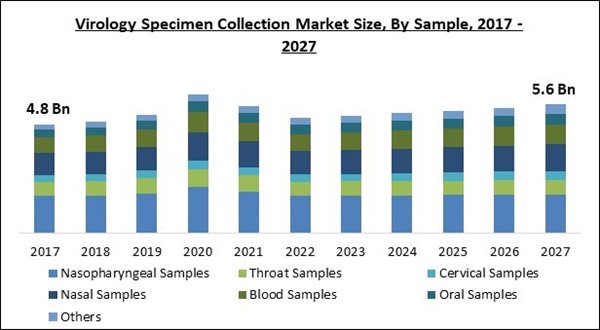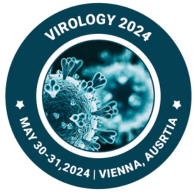welcome message
We also extend our gratitude to our sponsors, partners, and the organizing committee for their dedication and hard work in making this event possible.
About Conference
Conferences on immunology and virology are important platforms for scientists, researchers, and experts to exchange knowledge, present their research findings, and discuss the latest advancements in these fields. These conferences typically cover a wide range of topics related to the immune system, viral diseases, vaccines, and other related areas. Immunology and virology are closely related fields of study that focus on understanding the immune system and how it interacts with viruses and other pathogens.
Immunodeficiency Disorders are conditions where the immune system is weakened or dysfunctional, making individuals susceptible to infections. Examples include HIV/AIDS and primary immunodeficiency disorders. Immunology plays a crucial role in the development of vaccines to protect against infectious diseases. Vaccines train the immune system to recognize and fight specific pathogens. Immunotherapy is a rapidly advancing field that uses the immune system to treat various diseases, including cancer. Checkpoint inhibitors, CAR-T cell therapy, and monoclonal antibodies are examples of immunotherapies.
The coronavirus disease 2019 (COVID-19) pandemic, caused by the SARS-CoV-2 virus, has had a significant impact worldwide. Research in virology has played a crucial role in understanding the virus and developing vaccines. Ebola is a highly contagious virus that can cause severe hemorrhagic fever outbreaks in certain regions of Africa. Zika virus gained attention due to its association with birth defects, particularly microcephaly, in babies born to infected mothers.
Understanding immunology and virology is crucial for preventing and managing infectious diseases, developing vaccines, and advancing medical treatments. Ongoing research in these fields continues to provide insights into the complex interactions between pathogens and the immune system.
TARGETED AUDIENCE
-
Researchers and scientists
-
Academic professionals
-
Medical professionals
-
Pharmaceutical and Biotech industry representatives
-
Government and public health officials
-
Graduate and postgraduate students
-
Non-profit organizations
-
Journalists and science communicators
-
International attendees
-
Sponsors and exhibitors
-
Patients and patient advocates
WHY TO ATTEND
Virology meet 2024 provides an international platform for the presentation of research about diagnosis, prevention and management and the exchange of ideas about them, contributing to the dissemination of knowledge in immunology and virology diseases for the benefit of the academic community in addition to the business sector.
There will be plenary lectures, symposia, workshops on various topics, poster presentations, and various programs for participants from around the world during this Immunology and virology diseases congress, which is geared up for an exciting and informative conference program.
BENEFITS OF ATTENDING
-
Attending an immunology and virology conference can offer a wide range of benefits for professionals and researchers in the field. These conferences provide a platform for scientists, clinicians, and experts to come together, share their research findings, and engage in discussions about the latest developments in immunology and virology.
-
To share Knowledge Expansion,Networking Opportunities, Exposure to Diverse Perspectives, Presentation Skills,Stay Updated, Access to Cutting-Edge Technologies, Publishing Opportunities,Building Professional Relationships.
-
Overall, attending immunology and virology conferences can be a highly rewarding experience for anyone in the field. It offers a chance to learn, connect, and contribute to the advancement of knowledge and the fight against infectious diseases.
Sessions & Tracks
SESSIONS AND TRACKS
Session-1:Basic Immunology
Covering fundamental concepts of immunology, including the immune system components, mechanisms, and cell types involved.Complex network of cells, tissues, and molecules that work together to defend the body against infections and diseases. Understanding basic immunology is essential for comprehending how the immune system functions and how it responds to threats.
Related Tags
Vaccines | Antibodies | Antiviral Drugs | Innate Immunity | Adaptive Immunity | T-Cells | B-Cells | Immune System Regulation | Immuno deficiency | Antigen Presentation | Viral Pathogenesis | Host-Pathogen Interactions | Viral Evolution | Immune Memory | Immunotherapy| Viral Transmission | Immune Responses to Specific Viruses | Immune Evasion
Associations and Societies
American Association for Cancer Research | American Association of Immunologists | American College of Rheumatology |American Society for Cell Biology | American Society for Clinical Investigation | American Society for Microbiology | American Society for Virology | American Society of Tropical Medicine and Hygiene | Centers for Disease Control and Prevention | Federation of American Societies for Experimental Biology (FASEB) | Health Canada | International Center for Scientific Research | International Endotoxin & Innate Immunity Society | National Center for Biotechnology Information | USGS Microbiology Research.
Session-2:Clinical Immunology
Discussing clinical applications of immunology, such as immunotherapy, autoimmune diseases, and immunodeficiency disorders. It involves the diagnosis, treatment, and monitoring of various conditions in which the immune system is either overactive (resulting in autoimmune diseases or allergies) or underactive (leading to immunodeficiency disorders).
Related Tags
Associations and Societies
American Association for Cancer Research | American Association of Immunologists | American College of Rheumatology |American Society for Cell Biology | American Society for Clinical Investigation | American Society for Microbiology | American Society for Virology | American Society of Tropical Medicine and Hygiene | Centers for Disease Control and Prevention | Federation of American Societies for Experimental Biology (FASEB) | Health Canada | International Center for Scientific Research | International Endotoxin & Innate Immunity Society | National Center for Biotechnology Information | USGS Microbiology Research.
Session-4:Immunogenetics and Genomics
Exploring the role of genetics and genomics in understanding immune responses and susceptibility to diseases. Immunogenetics and genomics are two closely related fields of study within immunology that focus on understanding the genetic basis of immune system function and its relevance to human health and disease.
Related Tags
Vaccines | Antibodies | Antiviral Drugs | Innate Immunity | Adaptive Immunity | T-Cells | B-Cells | Immune System Regulation | Immuno deficiency | Antigen Presentation | Viral Pathogenesis | Host-Pathogen Interactions | Viral Evolution | Immune Memory | Immunotherapy| Viral Transmission | Immune Responses to Specific Viruses | Immune Evasion
Associations and Societies
American Association for Cancer Research | American Association of Immunologists | American College of Rheumatology |American Society for Cell Biology | American Society for Clinical Investigation | American Society for Microbiology | American Society for Virology | American Society of Tropical Medicine and Hygiene | Centers for Disease Control and Prevention | Federation of American Societies for Experimental Biology (FASEB) | Health Canada | International Center for Scientific Research | International Endotoxin & Innate Immunity Society | National Center for Biotechnology Information | USGS Microbiology Research.
Session-5:Inflammation and Immune Response
Discussing the mechanisms of inflammation and how the immune system responds to pathogens and tissue damage. Inflammation is a vital part of the immune response and is the body's way of defending itself against harmful stimuli, such as infections, injuries, or irritants. The process of inflammation involves a complex interplay of immune cells, signaling molecules, and physiological changes.
Related Tags
Vaccines | Antibodies | Antiviral Drugs | Innate Immunity | Adaptive Immunity | T-Cells | B-Cells | Immune System Regulation | Immuno deficiency | Antigen Presentation | Viral Pathogenesis | Host-Pathogen Interactions | Viral Evolution | Immune Memory | Immunotherapy| Viral Transmission | Immune Responses to Specific Viruses | Immune Evasion
Associations and Societies
American Association for Cancer Research | American Association of Immunologists | American College of Rheumatology |American Society for Cell Biology | American Society for Clinical Investigation | American Society for Microbiology | American Society for Virology | American Society of Tropical Medicine and Hygiene | Centers for Disease Control and Prevention | Federation of American Societies for Experimental Biology (FASEB) | Health Canada | International Center for Scientific Research | International Endotoxin & Innate Immunity Society | National Center for Biotechnology Information | USGS Microbiology Research.
Session-6:Immunotherapy
Highlighting novel approaches to treating diseases using immunotherapeutic strategies, including monoclonal antibodies and immune checkpoint inhibitors. Immunotherapy is a type of medical treatment that harnesses the body's own immune system to combat diseases, particularly cancer and autoimmune disorders. Unlike traditional treatments like chemotherapy or radiation therapy, which directly target cancer cells or suppress the immune system, immunotherapy aims to stimulate or enhance the body's natural immune response.
-
Cancer Immunotherapy
-
Autoimmune Disease Immunotherapy
-
Vaccines as Immunotherapy
Related Tags
Vaccines | Antibodies | Antiviral Drugs | Innate Immunity | Adaptive Immunity | T-Cells | B-Cells | Immune System Regulation | Immuno deficiency | Antigen Presentation | Viral Pathogenesis | Host-Pathogen Interactions | Viral Evolution | Immune Memory | Immunotherapy| Viral Transmission | Immune Responses to Specific Viruses | Immune Evasion
Associations and Societies
American Association for Cancer Research | American Association of Immunologists | American College of Rheumatology |American Society for Cell Biology | American Society for Clinical Investigation | American Society for Microbiology | American Society for Virology | American Society of Tropical Medicine and Hygiene | Centers for Disease Control and Prevention | Federation of American Societies for Experimental Biology (FASEB) | Health Canada | International Center for Scientific Research | International Endotoxin & Innate Immunity Society | National Center for Biotechnology Information | USGS Microbiology Research.
Session-7:Infectious Diseases and Immunity
Examining the interactions between pathogens and the immune system, including strategies employed by pathogens to evade immunity. Infectious diseases and immunity are closely intertwined topics within the field of immunology. Immunity is the body's defense mechanism against infectious diseases, and understanding how the immune system responds to pathogens is crucial in preventing and treating these diseases.
Related Tags
Vaccines | Antibodies | Antiviral Drugs | Innate Immunity | Adaptive Immunity | T-Cells | B-Cells | Immune System Regulation | Immuno deficiency | Antigen Presentation | Viral Pathogenesis | Host-Pathogen Interactions | Viral Evolution | Immune Memory | Immunotherapy| Viral Transmission | Immune Responses to Specific Viruses | Immune Evasion
Associations and Societies
American Association for Cancer Research | American Association of Immunologists | American College of Rheumatology |American Society for Cell Biology | American Society for Clinical Investigation | American Society for Microbiology | American Society for Virology | American Society of Tropical Medicine and Hygiene | Centers for Disease Control and Prevention | Federation of American Societies for Experimental Biology (FASEB) | Health Canada | International Center for Scientific Research | International Endotoxin & Innate Immunity Society | National Center for Biotechnology Information | USGS Microbiology Research.
Session-9:Viral Pathogenesis
Investigating how viruses cause diseases, including their molecular and cellular mechanisms. Viral pathogenesis refers to the process by which viruses cause diseases in their hosts. It involves the study of how viruses infect host cells, evade the host immune system, replicate, spread within the host, and ultimately lead to clinical symptoms.
-
Infection and Replication
-
Spread and Dissemination
Related Tags
Vaccines | Antibodies | Antiviral Drugs | Innate Immunity | Adaptive Immunity | T-Cells | B-Cells | Immune System Regulation | Immuno deficiency | Antigen Presentation | Viral Pathogenesis | Host-Pathogen Interactions | Viral Evolution | Immune Memory | Immunotherapy| Viral Transmission | Immune Responses to Specific Viruses | Immune Evasion
Associations and Societies
American Association for Cancer Research | American Association of Immunologists | American College of Rheumatology |American Society for Cell Biology | American Society for Clinical Investigation | American Society for Microbiology | American Society for Virology | American Society of Tropical Medicine and Hygiene | Centers for Disease Control and Prevention | Federation of American Societies for Experimental Biology (FASEB) | Health Canada | International Center for Scientific Research | International Endotoxin & Innate Immunity Society | National Center for Biotechnology Information | USGS Microbiology Research.
Session-10:Antiviral Therapies
Discussing the development and application of antiviral drugs and treatments to combat viral infections. Antiviral therapies are medications or treatment strategies designed to combat viral infections by inhibiting the replication or spread of viruses. These therapies can be used to prevent viral infections, manage acute infections, or suppress chronic viral diseases.
Related Tags
Vaccines | Antibodies | Antiviral Drugs | Innate Immunity | Adaptive Immunity | T-Cells | B-Cells | Immune System Regulation | Immuno deficiency | Antigen Presentation | Viral Pathogenesis | Host-Pathogen Interactions | Viral Evolution | Immune Memory | Immunotherapy| Viral Transmission | Immune Responses to Specific Viruses | Immune Evasion
Associations and Societies
American Association for Cancer Research | American Association of Immunologists | American College of Rheumatology |American Society for Cell Biology | American Society for Clinical Investigation | American Society for Microbiology | American Society for Virology | American Society of Tropical Medicine and Hygiene | Centers for Disease Control and Prevention | Federation of American Societies for Experimental Biology (FASEB) | Health Canada | International Center for Scientific Research | International Endotoxin & Innate Immunity Society | National Center for Biotechnology Information | USGS Microbiology Research.
Session-13:Viral Vaccines
Highlighting vaccine development for viral diseases, including updates on vaccine efficacy and safety.Viral vaccines are preventive measures designed to stimulate the immune system's response to specific viruses, thereby providing immunity against viral infections. Vaccines are a crucial tool in public health because they can prevent the spread of diseases and protect individuals from severe illness or complications.
Related Tags
Vaccines | Antibodies | Antiviral Drugs | Innate Immunity | Adaptive Immunity | T-Cells | B-Cells | Immune System Regulation | Immuno deficiency | Antigen Presentation | Viral Pathogenesis | Host-Pathogen Interactions | Viral Evolution | Immune Memory | Immunotherapy| Viral Transmission | Immune Responses to Specific Viruses | Immune Evasion
Associations and Societies
American Association for Cancer Research | American Association of Immunologists | American College of Rheumatology |American Society for Cell Biology | American Society for Clinical Investigation | American Society for Microbiology | American Society for Virology | American Society of Tropical Medicine and Hygiene | Centers for Disease Control and Prevention | Federation of American Societies for Experimental Biology (FASEB) | Health Canada | International Center for Scientific Research | International Endotoxin & Innate Immunity Society | National Center for Biotechnology Information | USGS Microbiology Research.
Session-16:Viral Diagnostics
Presenting advances in diagnostic methods for detecting viral infections, including molecular techniques and serological assays.Viral diagnostics are laboratory tests and techniques used to detect, identify, and characterize viral infections in patients. Accurate diagnosis of viral infections is essential for appropriate patient management, treatment, and public health measures.
-
Nucleic Acid Amplification Tests
-
Serological tests
-
Viral culture
-
Next Generation Sequencing
Related Tags
Vaccines | Antibodies | Antiviral Drugs | Innate Immunity | Adaptive Immunity | T-Cells | B-Cells | Immune System Regulation | Immuno deficiency | Antigen Presentation | Viral Pathogenesis | Host-Pathogen Interactions | Viral Evolution | Immune Memory | Immunotherapy| Viral Transmission | Immune Responses to Specific Viruses | Immune Evasion
Associations and Societies
American Association for Cancer Research | American Association of Immunologists | American College of Rheumatology |American Society for Cell Biology | American Society for Clinical Investigation | American Society for Microbiology | American Society for Virology | American Society of Tropical Medicine and Hygiene | Centers for Disease Control and Prevention | Federation of American Societies for Experimental Biology (FASEB) | Health Canada | International Center for Scientific Research | International Endotoxin & Innate Immunity Society | National Center for Biotechnology Information | USGS Microbiology Research.
Market Analysis
The global virology market is estimated at $1693 million in 2017 and is estimated to grow at a CAGR of 5.4% during the forecast period 2018-2023. North America is the leading market holder driven by world class healthcare substructure with technological advancement practice. Asia-Pacific is likely attaining highest growth due to growing healthcare tourism in the nations of China and India. Hospitals and the Laboratories are the most dominating end-use segments.
The global infectious disease diagnostics market is expected to rise at a CAGR of 7.2 percent from USD 28.1 billion in 2021 to USD 39.8 billion in 2026. The global incidence of infectious diseases and the emergence of COVID-19, as well as rising awareness for early disease identification, a shift in focus from centralised laboratories to distributed POC testing, and technical improvements, are driving market expansion. Infectious disease prevalence in both established and developing nations will boost the infectious disease diagnostics market's growth. The rising number of prescriptions for infectious disease diagnostic tests is due to the diagnosis and management of such disorders. During the projection period, these factors, combined with the growing tendency toward preventative care, are projected to increase demand for infectious disease diagnostics.
Virology is a scientific discipline dedicated to the comprehensive study of viruses and viral diseases. It encompasses a wide range of aspects, including virus distribution, biochemistry, disease-causing properties, physiology, molecular biology, ecology, cultivation, evolution, genetics, and clinical aspects. Virology delves into the intricate interactions between viruses and the physiology and immunity of host organisms, the diseases they induce, methods for isolating and culturing them, strategies for infecting and exploiting host cells for reproduction, and their applications in research and therapy.
Virology Market Overview In recent times, nanotechnology has brought about notable advancements, particularly in the field of nanostructure-based electrical sensors. These sensors offer promising platforms for the real-time and sensitive detection of various bioanalytes. Utilizing Nanopore-Based Resistive-Pulse Sensing Techniques, scientists can accurately determine both the dimensions and quantities of viruses, providing invaluable complementary information for the detection of all types of viruses and virus-related particles.
Microbiology testing stands out as one of the fastest-growing segments in the diagnostics industry. Key drivers for this growth include the persistent global spread of HIV, which remains a significant health threat, contributing to the rise in opportunistic infections. Additionally, advances in molecular diagnostic technologies, increased availability of immunosuppressive drugs, and heightened awareness programs about various viruses such as Ebola, influenza, Zika, STDs, and AIDS are fueling market expansion through the application of virology.

Major Players in the Virology Market Prominent companies in the virology market, as identified in market research reports, include GlaxoSmithKline plc, Abbott Laboratories, Boehringer Ingelheim Corporation, Merck and Co. Inc., and Novartis International AG.
Report Scope The comprehensive report provides an in-depth assessment of the competitive landscape, product market sizing, product benchmarking, market trends, product developments, financial analysis, strategic analysis, and more. It aims to evaluate the impact forces and potential opportunities within the market. Furthermore, the report includes an examination of significant market developments such as product launches, agreements, acquisitions, collaborations, and mergers, allowing for an understanding of the current market dynamics and their projected influence during the forecast period of 2018-2024.
Vaccines | Antibodies | Antiviral Drugs | Innate Immunity | Adaptive Immunity | T-Cells | B-Cells | Immune System Regulation | Immuno deficiency | Antigen Presentation | Viral Pathogenesis | Host-Pathogen Interactions | Viral Evolution | Immune Memory | Immunotherapy| Viral Transmission | Immune Responses to Specific Viruses | Immune Evasion
We are inviting all the participants for upcoming conference World Congress on Immunology and Virology Diseases Conference which will be held on May 30,31, 2024 at Vienna,Austria.







